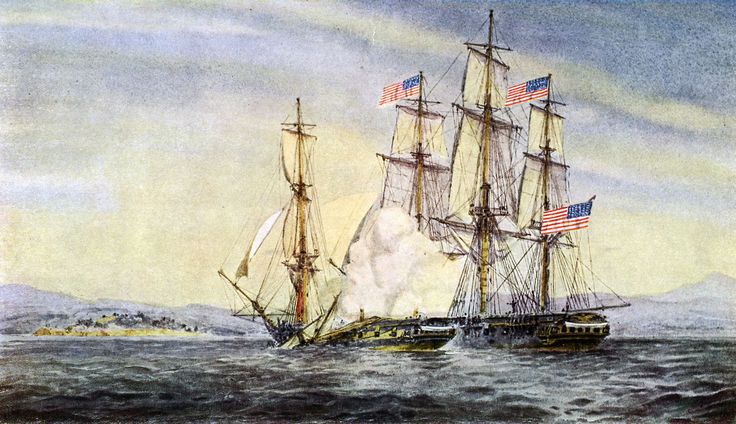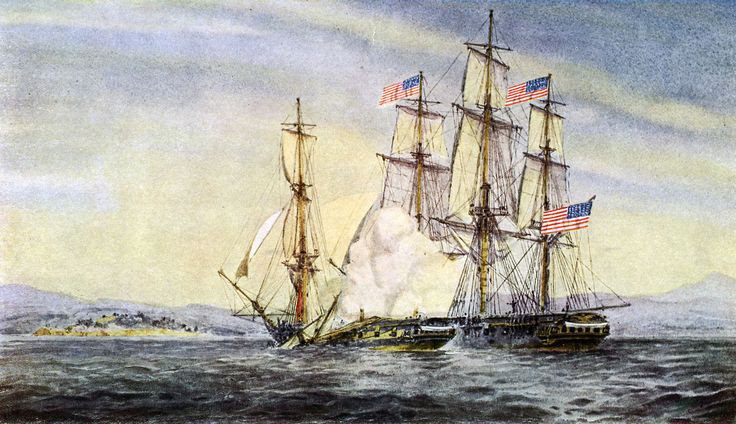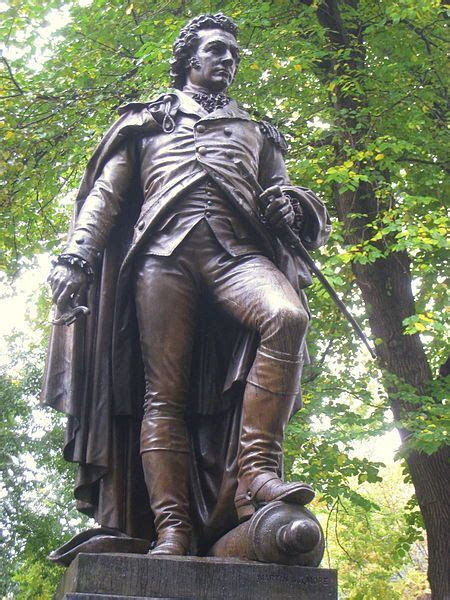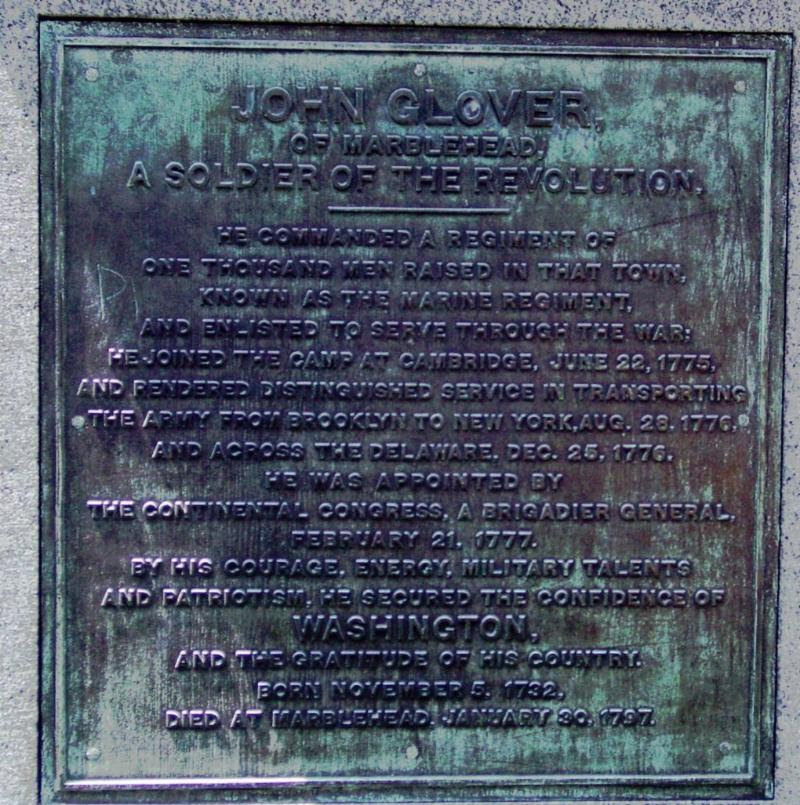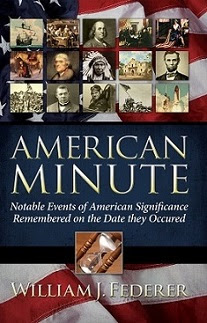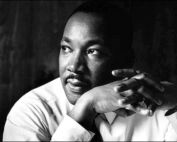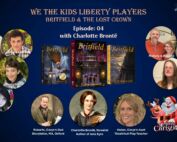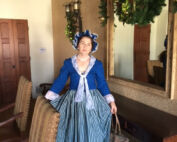On AUGUST 4, 1790,  the Revenue Marine, later called Revenue Cutter Service, was created by the recommendation of Alexander Hamilton, the Secretary of the Treasury. It consisted of 10 ships charged with stopping smuggling and French privateers from operating in American waters.
|
|
The Revenue Marine’s first seven masters (captains) were commissioned by President George Washington on March 12, 1791.
The Revenue-Marine was the only armed maritime service of the United States till the Department of the Navy was created in 1798.
During the U.S.-French Quasi War of 1798-1801, eight Revenue Cutter vessels were among the 45 American ships that served in combat.
|
|
When the U.S. Government passed the Slave Trade Act of 1794, the Revenue-Marine began intercepting slave ships which were illegally bringing slaves into the country.
|
|
Slaves were bought predominantly from Arab Muslim slave markets of Africa.
|
|
DVD Political Islam’s War on the West
|
|
Missionary to Africa David Livingstone wrote of witnessing the Muslim Arab slave trade in the mid-19nth century:
“We passed a slave woman shot or stabbed through the body and lying on the path … an Arab who passed early that morning had done it in anger at losing the price he had given for her, because she was unable to walk any longer.
|
|
… We passed a woman tied by the neck to a tree and dead … We came upon a man dead from starvation …
The strangest disease I have seen in this country seems really to be broken heartedness, and it attacks free men who have been captured and made slaves.”
|
|
David Livingstone estimated that each year over 80,000 Africans died before reaching the Muslim slave markets, writing to the editor of the New York Herald:
“If my disclosures regarding the terrible Ujijian slavery should lead to the suppression of the East Coast slave trade, I shall regard that as a greater matter by far than the discovery of all the Nile sources together.”
|
|
On January 1, 1808, exactly 55 years before Republican President Abraham Lincoln issued the Emancipation Proclamation, Congress closed all U.S. ports to the importation of slaves.
|
|
The U.S. Revenue Cutter Service intercepted and freed nearly 500 slaves.
|
|
The U.S. Revenue Cutter Service defended the United States in every major conflict, including the:
-War of 1812,
-Counter-Piracy operations,
-Mexican-American War,
-Civil War,
-Spanish-American War,
-World Wars I and II.
In 1915, the U.S. Revenue Cutter Service was merged with the U.S. Lifesaving Service to form the U.S. Coast Guard.
|
|
The original anthem of the U.S. Coast Guard was:
“To sink the foe or save the maimed,
Our mission and our pride,
We’ll carry on ’til Kingdom Come,
Ideals for which we’ve died.”
|
|
In 1939, the U.S. Lighthouse Service was merged into the U.S. Coast Guard, as was the Steamboat Inspection Service and Bureau of Navigation in 1946.
|
|
In 1967, the U.S. Coast Guard was transferred to the Department of Transportation.
|
|
President John F. Kennedy remarked aboard the U.S. Coast Guard Training Barque “Eagle,” August 15, 1962:
“This is a very ancient service in our country’s history.
Its first father … Alexander Hamilton, began the Coast Guard as a revenue collecting service, asked the Congress of the United States for appropriations for 10 vessels …
|
|
… The first Eagle was one of our most distinguished warships, and in actions against privateers of France, captured over five vessels, and recaptured seven American vessels …”
|
|
Kennedy ended:
“This is the oldest continuous seagoing service in the United States, stretching back to the beginning of our country.”
|
|
President Herbert Hoover suggested December 27, 1929:
“A further proposal … is the definite expansion of the Coast Guard … in the matter of border patrol.”
|
|
Included in the list of casualties at the WWII Battle of Okinawa, President Truman stated, June 1, 1945:
“Navy and Coast Guard losses were 4,729 killed and 4,640 wounded.”
|
|
At the U.S. Coast Guard Academy in New London, September 20, 1952, President Truman stated:
“I was just reading … about the Coast Guard’s icebreaker that has been closer to the North Pole than any other ship in delivering food and supplies to a station up there …
That, my young friends, is what makes this country great.”
|
|
President John F. Kennedy continued his address aboard the U.S. Coast Guard Training Barque “Eagle,” August 15, 1962:
“You serve our country in peacetime, on ice patrols and weather patrols, in protecting the standards of the merchant marine, in protecting safety at sea … and in time of war you, with the American Navy, as you did in World War II and at the time of Korea.”
|
|
At the U.S. Coast Guard commencement in New London, June 3, 1964, President Lyndon Johnson remarked:
“Winston Churchill once said: ‘Civilization will not last, freedom will not survive, peace will not be kept, unless mankind unites together to defend them and show themselves possessed of a power before which barbaric forces will stand in awe’ …
In every area of national strength America today is stronger than it has ever been before …
It is stronger than the combined might of all the nations in the history of the world. And I confidently predict that strength will continue to grow …”
|
|
President Johnson continued:
“No one can live daily, as I must do, with the dark realities of nuclear ruin, without seeking the guidance of God to find the path of peace.
We have built this staggering strength not to destroy but to save, not to put an end to civilization but rather to try to put an end to conflict.”
|
|
At a U.S. Coast Guard commencement, May 18, 1988, President Reagan stated:
“It’s our prayer to serve America in peace. It’s our commitment to defend her in war.”
|
|
American Minute is a registered trademark of William J. Federer. Permission is granted to forward, reprint, or duplicate, with acknowledgment.
|
|
Schedule Bill Federer for informative interviews & captivating PowerPoint presentations: 314-502-8924 wjfederer@gmail.com
|
|
Miracles in American History CTVN
|
|
|
|
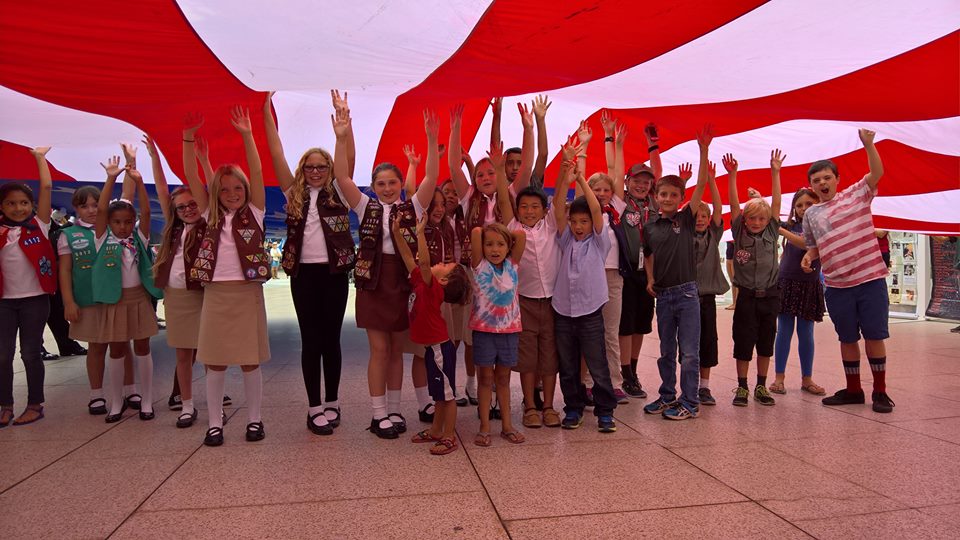 WE THE KIDS Message to Veterans!
WE THE KIDS Message to Veterans!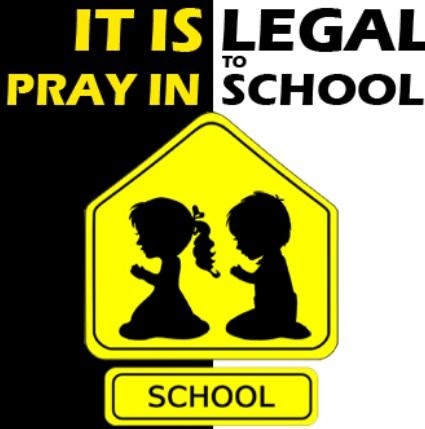 American Minute with Bill Federer It is Legal to Pray in School (Voluntarily!)
American Minute with Bill Federer It is Legal to Pray in School (Voluntarily!)
